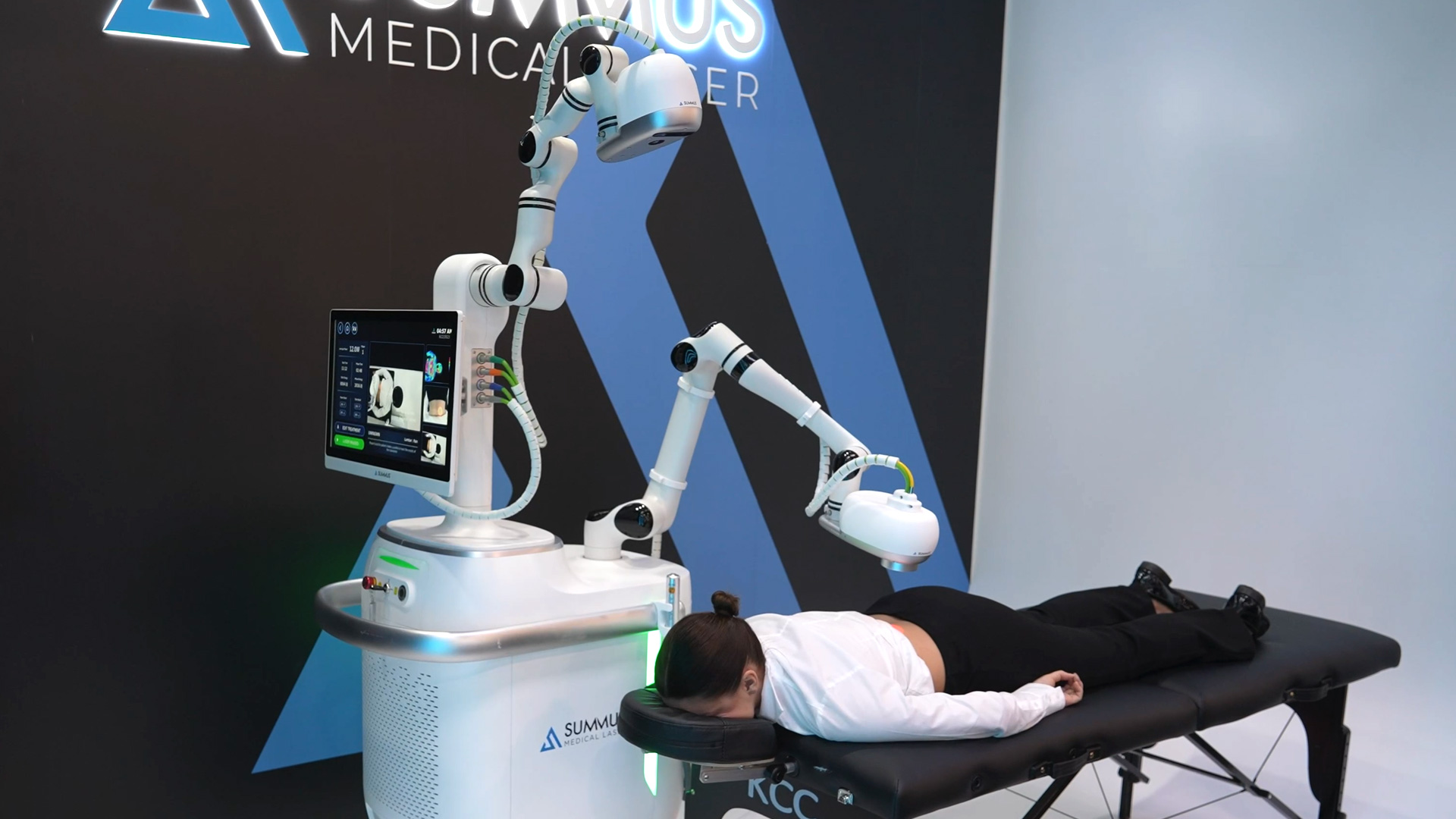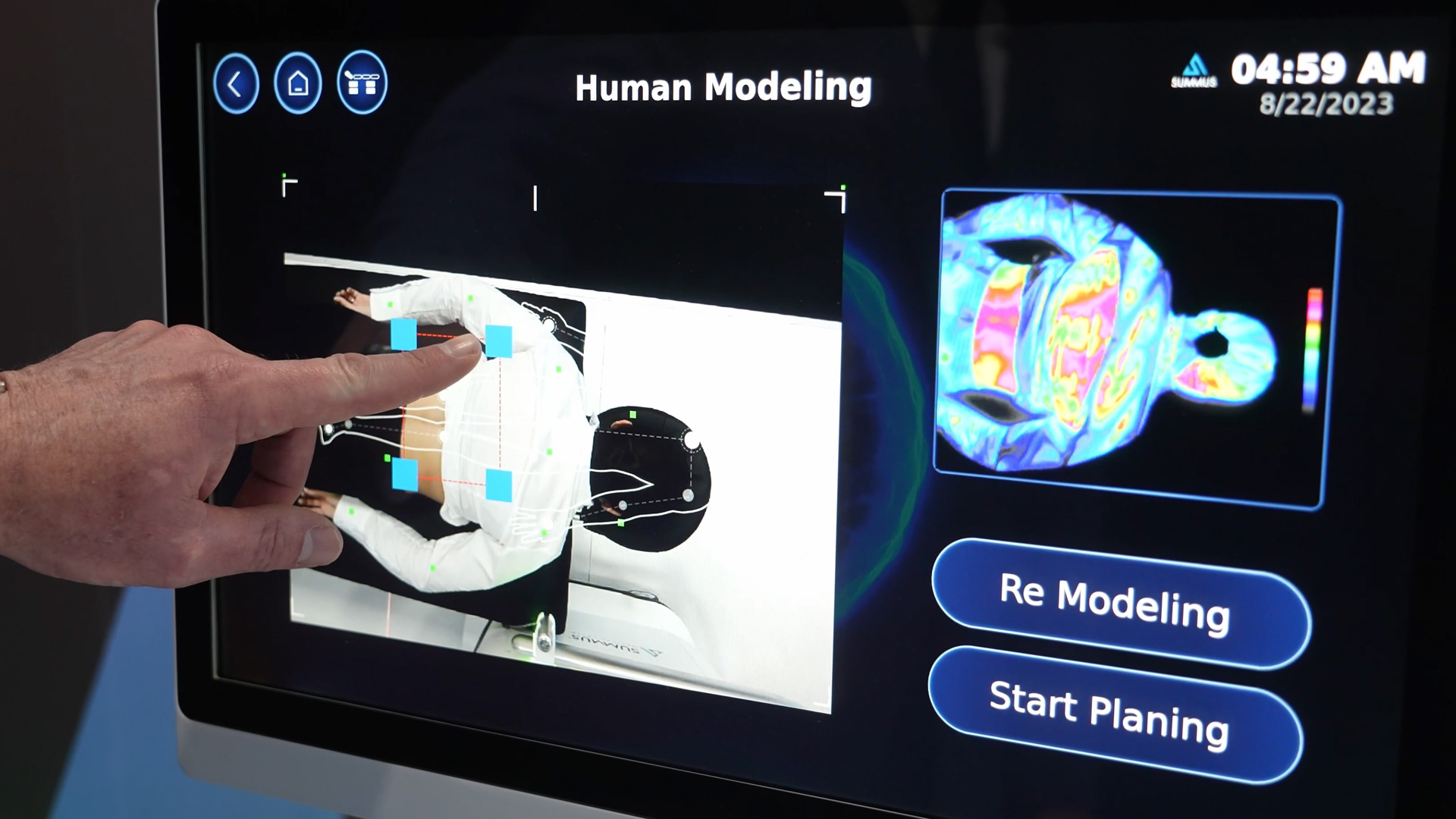At MEDICA, Summus Medical Laser's Iris demonstrates how robot-assisted laser therapy and precise control can be combined. The system operates largely autonomously, uses multiple infrared wavelengths, and is aimed at facilities that require reproducible processes and reduced resource requirements. The combination of AI, robotics, and sensor technology creates an approach that effectively complements conventional handheld lasers.
The Iris is presented as a high-performance laser that can be used in pain therapy environments, physical therapy practices, sports medicine facilities, orthopedics, and chiropractic. Treatments are possible on the entire body, from acute injuries to chronic complaints.

Typical indications include strains, sprains, arthritic diseases, peripheral neuropathies, and wound healing support. The range shows that the system is not limited to individual clinical pictures, but has been designed for different tissue structures and causes of pain.
Technically, Iris is based on five infrared wavelengths that penetrate deep into the tissue and trigger different photobiological reactions. All rays are invisible, so the effect is described in terms of cellular processes rather than heat; the sensation of warmth is a secondary effect. Sensors, thermal imaging technology, and AI elements support correct positioning and dosed application. This allows defined protocols to be reproduced without the results depending on the individual execution of a user.

A key advantage is the reduction in workload for medical staff. Once programmed and positioned, the Iris continues to work autonomously, reducing the amount of time spent directly on the device. For practices with high workloads, this means that more treatments can be performed in the same amount of time.
Treatment times range from a few minutes for arms and shoulders to about 12 to 15 minutes for the hip or lumbar spine, depending on the area of the body. In practice, this means that several patients can be treated per hour, especially for serial applications of smaller areas.
